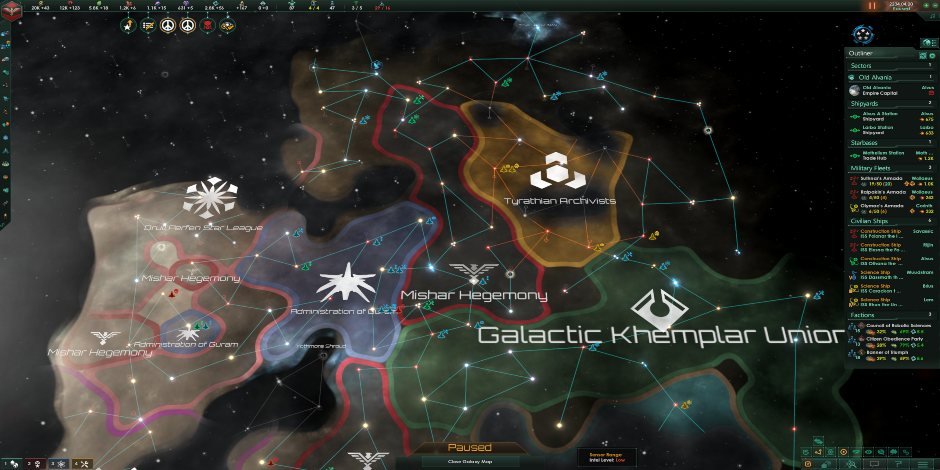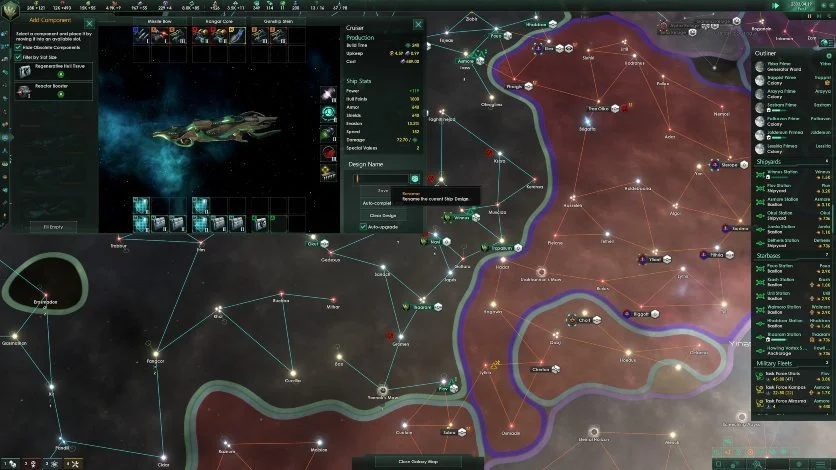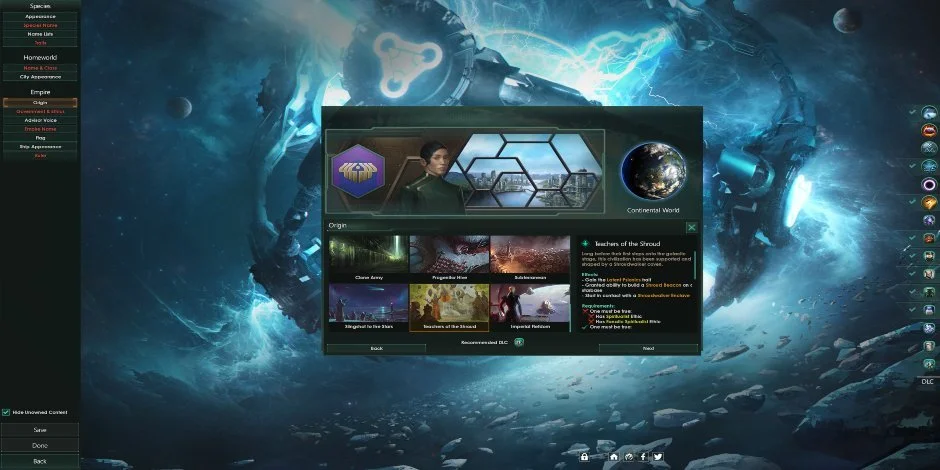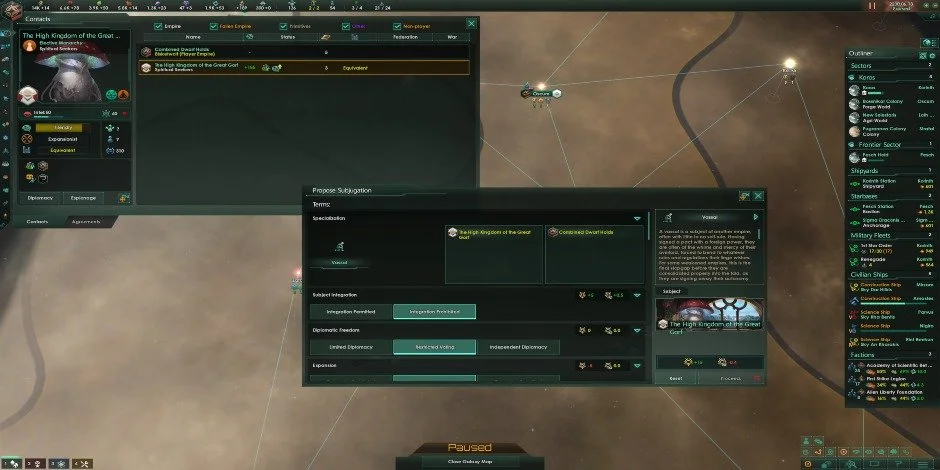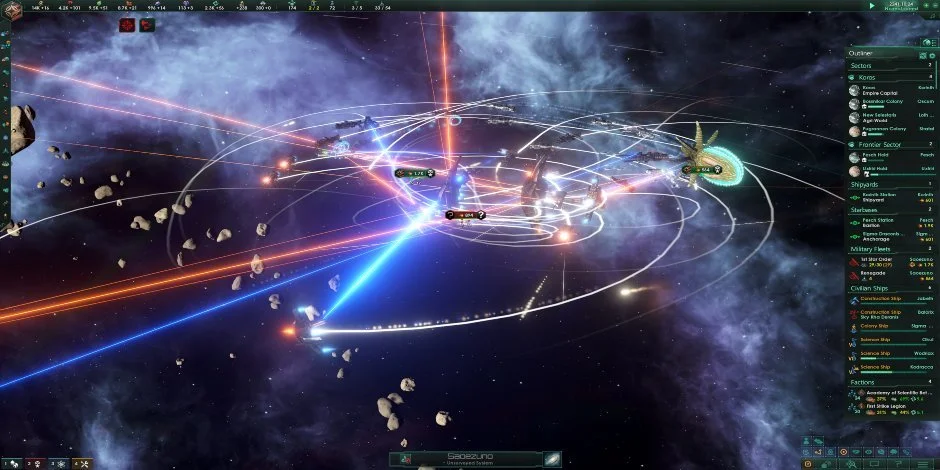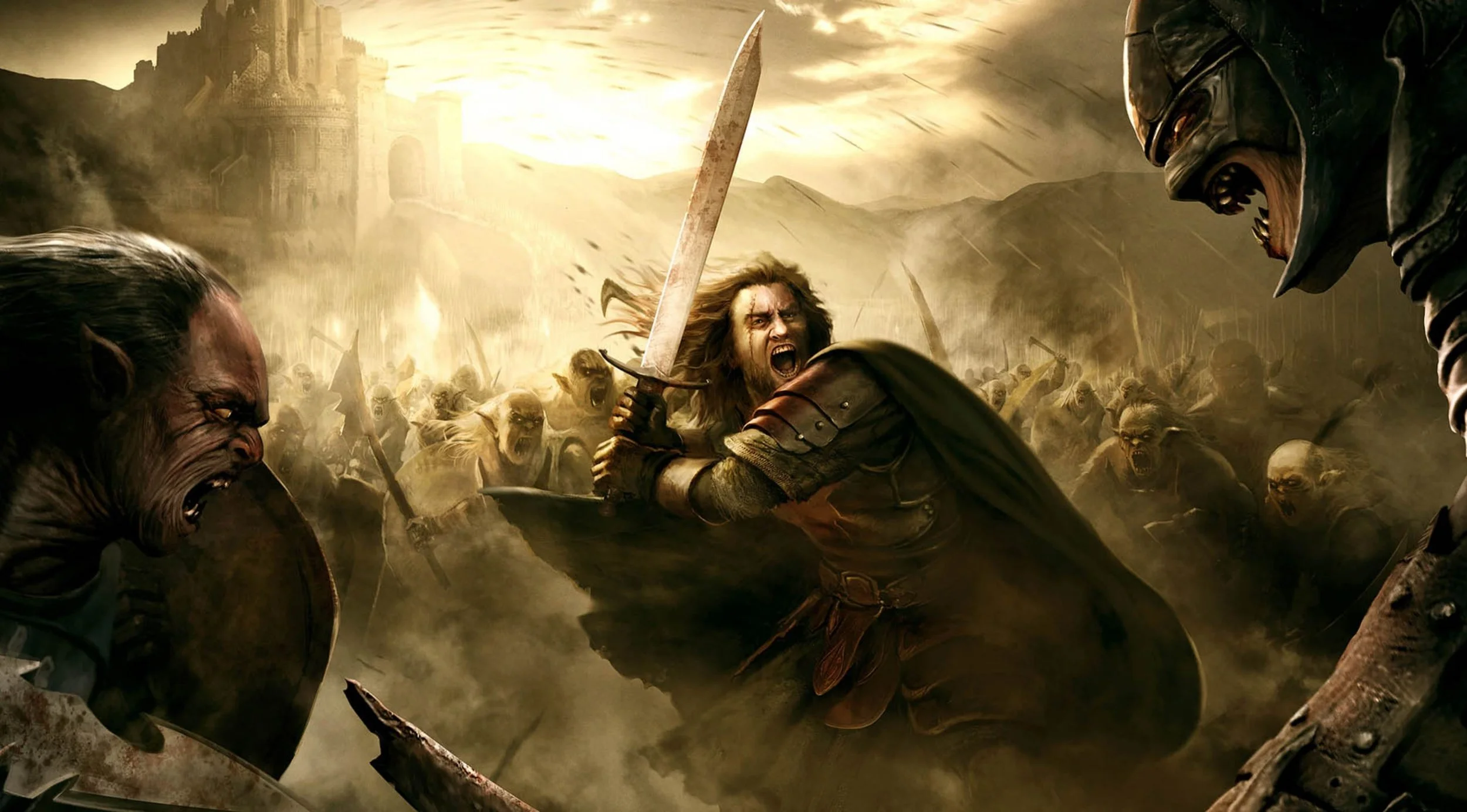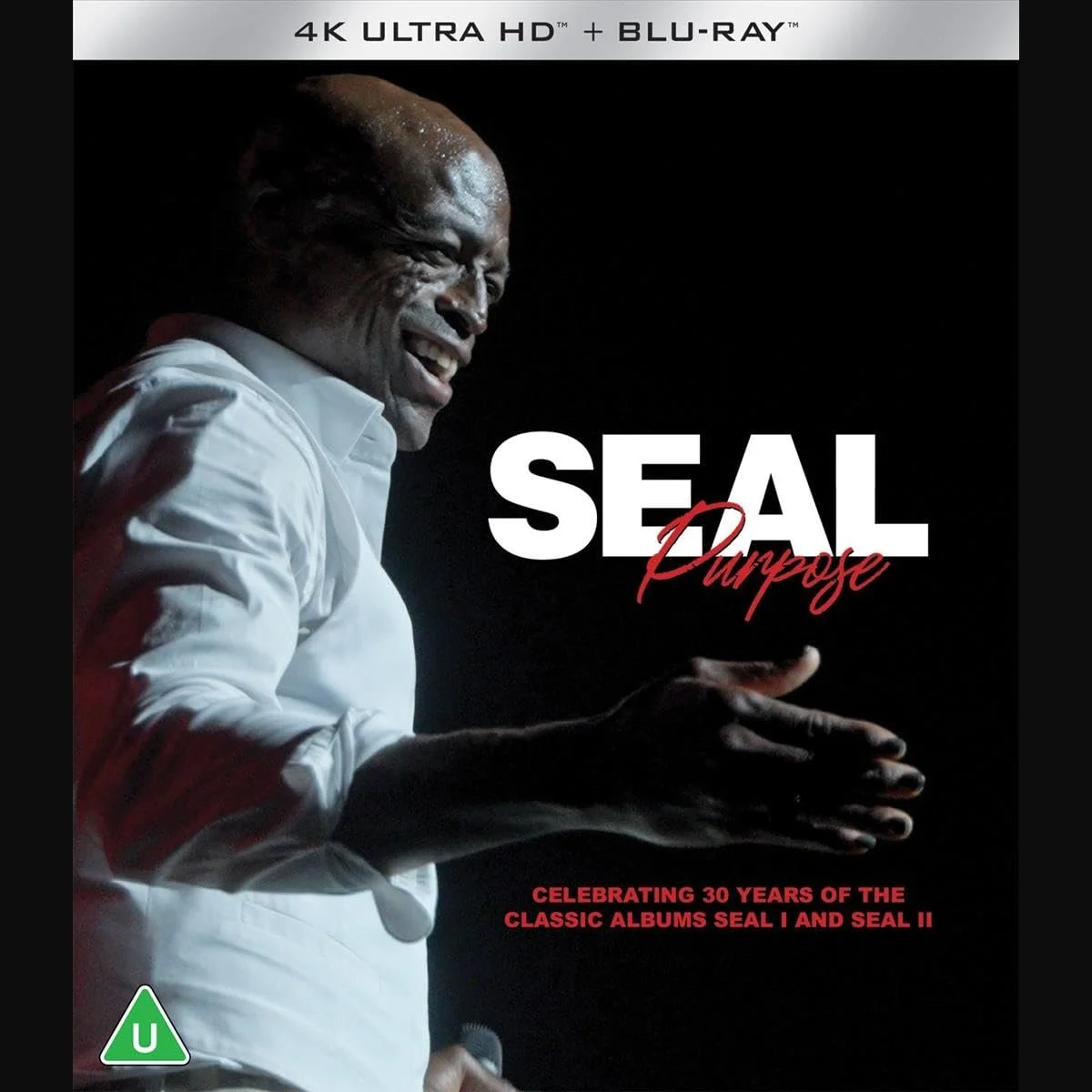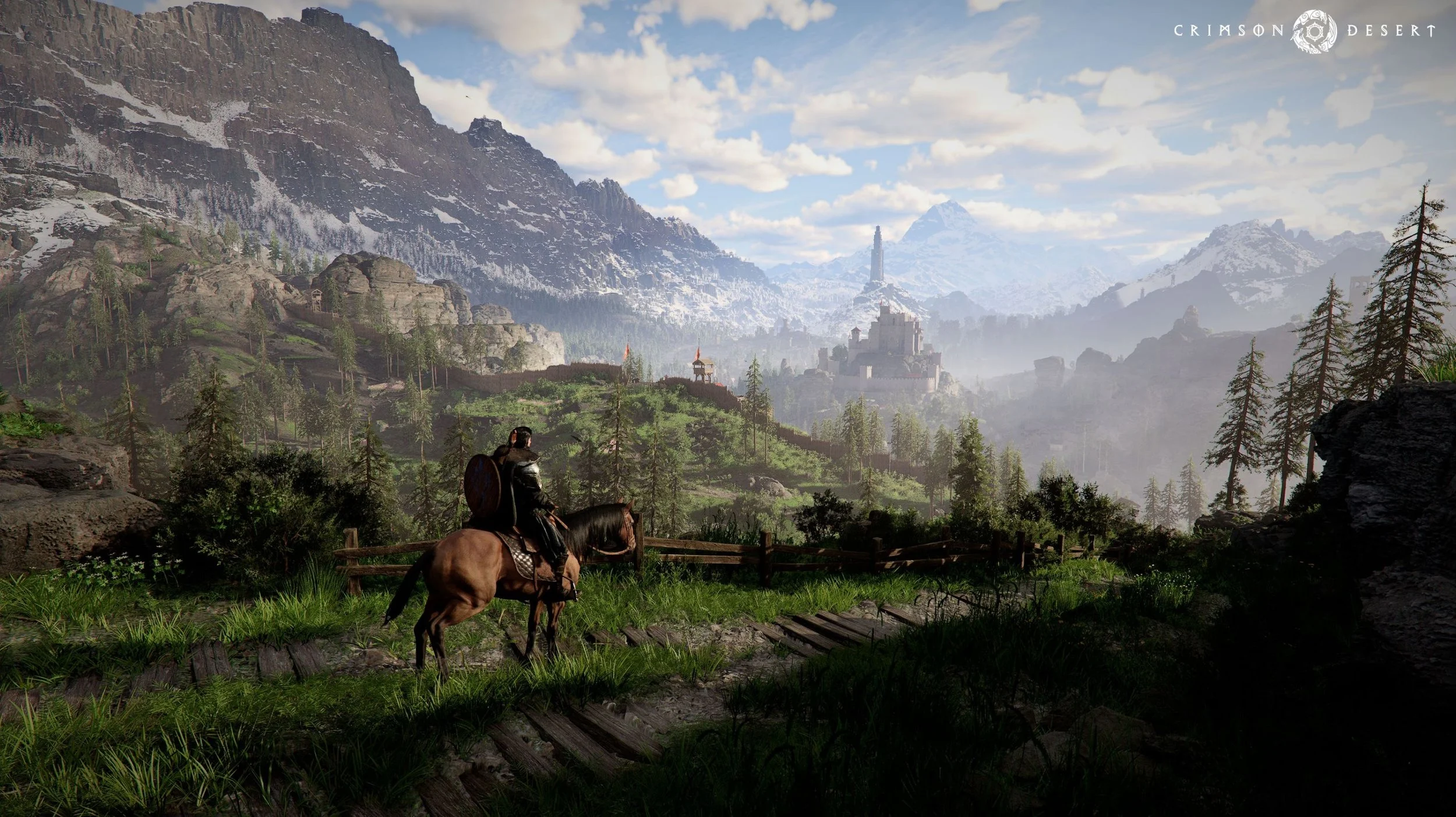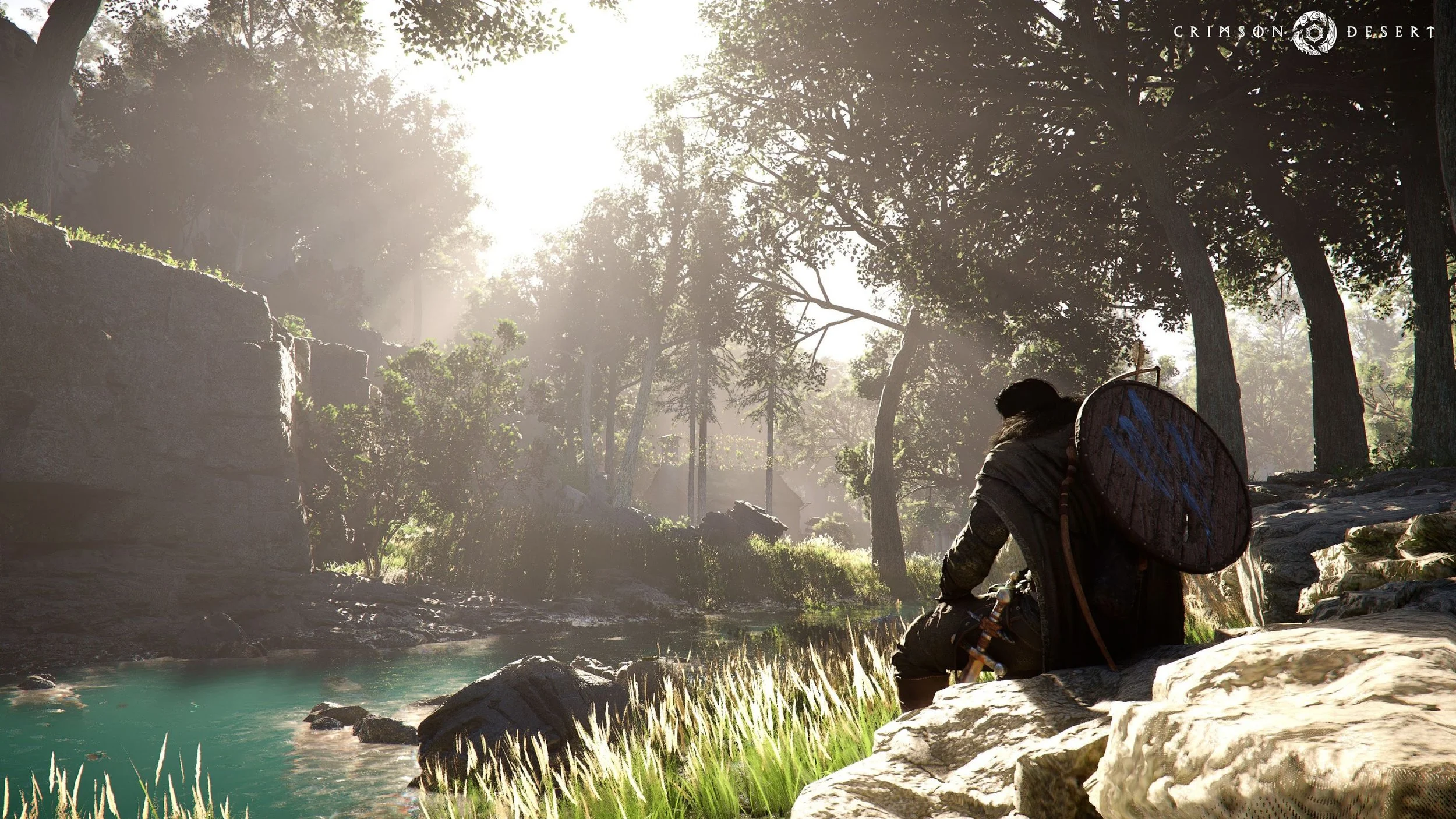Review code provided by Paradox Interactive
It’s tough ruling a galactic empire, especially when it is difficult to appropriately manage your vassals. Luckily, Paradox Interactive’s newest DLC for Stellaris makes it much simpler and more rewarding. Overlord takes the difficulty out of understanding the relationship between aptly named overlords and their vassals while adding new events and layers of involvement throughout the game. Luckily, I’ve managed to receive a copy of the DLC before its release and can give you all the details on how it will affect your game.
If you’re unfamiliar with Stellaris, it’s a 4x-space-grand-strategy game following a nation’s first steps off their planet and the centuries that follow. Science, battle, resource exploitation, and diplomacy all have major importance, and focusing on just one can leave your fledgling space empire to the mercy of the others who may do you harm. While complicated and in-depth (like any of the Paradox games) Stellaris is a great game for those who enjoy following a dynamic story told through events and player engagement with the galaxy. Just be careful that a crisis doesn’t come along at the end and ruin everything…
Gameplay
The gameplay changes for Overlord add more depth to interactions among the various denizens of the galaxy. Vassal management has been made more beneficial to both the vassal and the overlord, and different types of vassals make it easier to specialize subjects for the overlord’s needs. For example, one vassal might be military focused as the shield and receive bonuses for their strength and space stations, while another might be focused on mining resources and have negatives to their military that must be supplemented by the overlord.
Before this DLC, becoming a vassal due to losing a war meant a slow death. Now, while managing vassals has gotten easier, the bonuses vassals receive from their overlord mean that it isn’t necessarily the end. After some time, breaking free from your overlord is a valid option. Negotiations between vassals and overlords mean that they might dictate specific terms, such as being able to vote separately or have the ability to expand, as an agreement for their vassalization. Overlord gives much more depth to consolidating and displaying your empire’s power through your vassals.
With the DLC there are also 5 new origins. Each of these decides some starting capabilities and quirks about your empire, as well as provides new role-playing opportunities. Start as a subterranean empire and reside in caves on all the planets you occupy. Be the newest vassal starfarers in an already established feudal space empire, but can you hope to break free from your masters? These options and more add to the already deep empire customization and really allow players to create some outlandish and interesting races and empires.
I’ll just say my subterranean Space Dwarf dreams finally came true and conquering the galaxy felt fresh again. The addition of mercenary enclaves and 2 more space enclaves added their own sets of events and utilization, as well as interactions with each of the enclaves and respective rules in the galactic senate.
Automation settings were also an exciting free inclusion to the DLC and the update that comes with it. Allowing the AI to manage certain parts of your empire will make it easier to remain focused or teach newer players the game. While not something I necessarily used, it was a very cool update that will help newer players and makes the admittedly dizzying gameplay of Stellaris significantly simpler.
What It Could Do Better
Stellaris DLC has a tendency to be either wonderful and necessary to enjoy the game, or a sort of fluff that you can get if you like the concept. I expected Overlord to be mostly fluff with some great free updates, but I’ve found that many of the changes deeply impacted how I played the game. Managing vassals was so much more interesting, and seeing how the late game developed compared to some of my previous games was amazing. With multiple specialized vassals, I felt much more secure knowing what each of them was doing without having to hand-hold or directly manage them. Utilizing these vassals also felt much more organic and added to the role-playing experience. Playing Stellaris without Overlord would feel like a major step back.
Watching situations develop, another free feature, was probably my favorite part of the experience. As different events occur, such as deficits, you aren’t instantly hit with a debuff. Instead, as the issue continues or resolves, events will occur to move the situation in certain directions for the specific planet or region. While I haven’t seen many of them pop up, it was definitely neat seeing it in action.
Verdict
Like many of the Stellaris DLC, I would say that this one should be recommended based on previous experience with the base game and other DLC. If you are a newbie to Stellaris, this isn’t necessary and there are much more important DLC to buy. However, if you have played Stellaris for years and have some of the other expansions, Overlord is one I would definitely recommend. The vassal management and added origins changed a lot for the game and really brought me back into something I haven’t played for months. A lot of the late-game frustration of managing populations and vassals was made simpler, and I was able to enjoy my kingdom and the events much more. Less stress in empire management means I give this a rating of “buy it if you’ll play it.”
Stellaris Overlord releases today on Steam, GoG, and the Microsoft Store. Check out the trailer below and let us know your thought in the comments!
